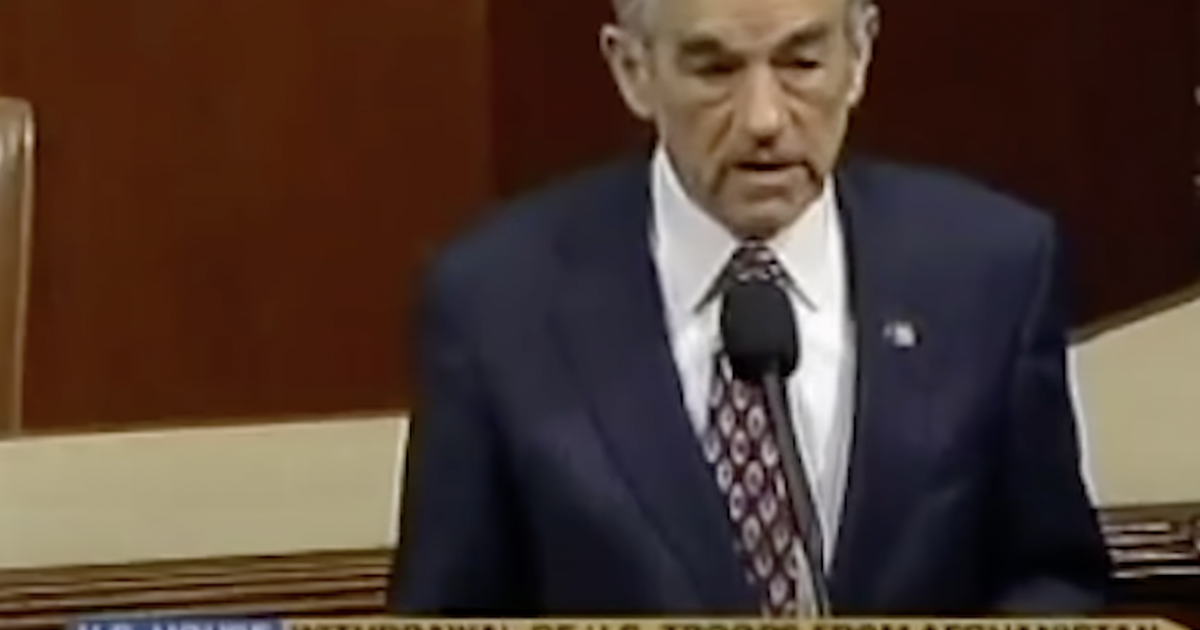
Following the Biden administration’s decision to withdraw from Afghanistan — a correct move but done in a completely uncoordinated manner — many liberty conservatives have paused to reflect on the greatness of former Congressman Ron Paul. Indeed, since Paul was first elected to Congress in 1976 until his retirement in 2013, he has been a beacon of non-interventionist thought.
Since he left Congress in 2013, a major void has been left in Congress when it comes to principled non-interventionism. Though, his fervent advocacy of non-interventionism has greatly influenced a number of populist-leaning politicians on the Right
But it’s not just the non-interventionist wing of the Right that has praised Paul. Progressive podcast host and comedian Jimmy Dore, recently praised Ron Paul on a show he did on August 18, 2021. Dore underscored how he was not in agreement with Paul’s domestic program, but did share his vision of foreign policy restraint.
On his podcast show, Dore played a clip of Paul’s speech before the US House on March 2011 in which he called for a withdrawal of troops from Afghanistan.
During his speech, Paul described the Afghanistan intervention as a “fruitless venture” and even said that the US government was “not there on legal conditions.” At the time, Paul presaged that the US would be stuck in the Afghan conflict for another decade. And in that case, the good Doctor was correct.
At the time, Republicans should have listened to the great doctor. All empires end for fiscal reasons because they spread themselves too thin around the world. The US is no exception to this rule.
Even after the US spent $2 trillion and lost over 2,300 troops, there are still politicians who want to stay in Afghanistan indefinitely. And there are also some who want to get the US mired in Great Power conflicts with China and Russia.
It’s up to the new generation of liberty conservatives to reorient American foreign policy along the lines of a restrained vision that focuses on securing its sphere of influence (the Western Hemisphere) and its southern border, while staying out of other Great Powers’ backyards.



